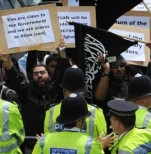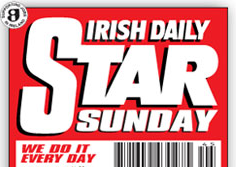A journal editor who was sued in France for criminal libel because of a negative book review has won his case, he told The Chronicle today. Joseph H.H. Weiler, a professor of law at New York University, said that a French court had ruled against the complaint brought against him by Karin N. Calvo-Goller, a scholar in Israel. Ms. Calvo-Goller took issue with a critical review of one of her books on the Global Law Books Web site, which Mr. Weiler edits.
Free speech and the rule of law
 Last week, on 17 March, as the world celebrated Ireland’s national day in honour of St Patrick, the Taoiseach (the Irish Prime Minister) made the annual presentation of a bowl of shamrock to the President of the United States (pictured left). I seem to remember being taught in school that the reason the shamrock is one of Ireland’s unofficial national symbols is because St Patrick explained the Christian doctrine of the Holy Trinity by reference to the three leaves of the shamrock. I now work in a College named for the same Holy and Undivided Trinity. So, it might come as little surprise that I have recently been thinking about a trinity, though a rather more secular one. What I have in mind is the constitutional trinity on which many modern states are founded: liberal democracy and the rule of law.
Last week, on 17 March, as the world celebrated Ireland’s national day in honour of St Patrick, the Taoiseach (the Irish Prime Minister) made the annual presentation of a bowl of shamrock to the President of the United States (pictured left). I seem to remember being taught in school that the reason the shamrock is one of Ireland’s unofficial national symbols is because St Patrick explained the Christian doctrine of the Holy Trinity by reference to the three leaves of the shamrock. I now work in a College named for the same Holy and Undivided Trinity. So, it might come as little surprise that I have recently been thinking about a trinity, though a rather more secular one. What I have in mind is the constitutional trinity on which many modern states are founded: liberal democracy and the rule of law.
All three elements of this trinity are multi-faceted, contestable, and elusive. Moreover, it is possible to conceive of a state which commits to one of the elements of this constitutional trinity, or even two, but – like a three-legged stool – they have become mutually reinforcing in many modern states, so much so that they often fade into one another both in popular conception and in more considered analysis.…




